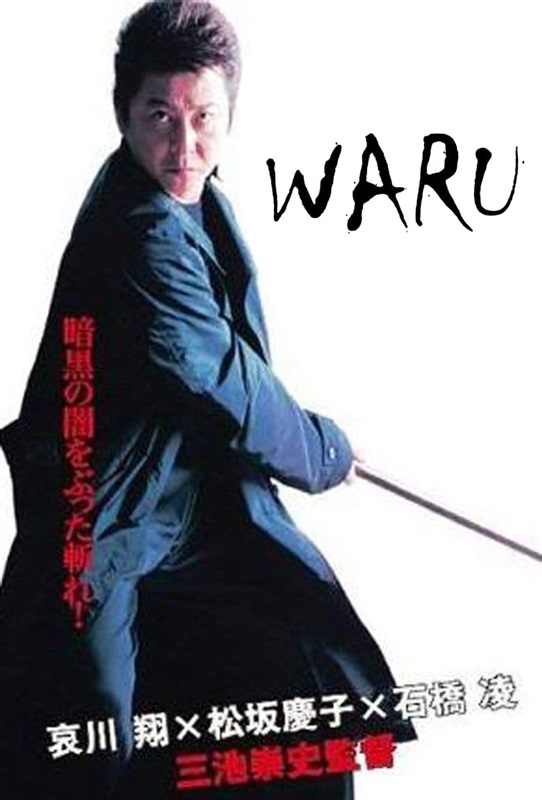Waru (2006)

WARU is a DTV duology that I'll treat as a single piece even though it completely jumps the shark in Part II, since to some extent it already has by the end of Part I.
So... in WARU, Sho Aikawa is a Kendo teacher who joins an anti-Yakuza organisation after getting out of prison, is (unsurprisingly) targeted by Yakuza assassins, fakes his own death, rescues the US First Lady from a hostage situation and proceeds to take on the Japanese branch of Al Qaeda.
Yeah, there's a lot to unpack... and I haven't even mentioned the S&M yet.
Such WTF moments are of course no stranger to Takashi Miike, indeed you could say he's built a career out of them, but WARU starts out like one of his relatively sober Yakuza films, and for the most part that is the tone it keeps, even as it drops in scenes of random S&M, assassin farce and what I guess was topical political commentary on Japan's involvement in the Iraq War.
As a result it's trapped between two worlds, lacking the gravitas that a serious Yakuza film needs and the levity that would sustain a more whimsical adventure.
My perceptions may be skewed by the lousy subtitles I had for Waru: The End. They made following what was happening even more difficult than the randomness of the plot, and I was only able to piece together how some of the characters and plot points fit together retrospectively. I've uploaded a slightly improved version to Open Subtitles, but they're still a long way off being accurate or good.
You have to wonder why Takashi Miike made Waru in 2006, when his star was shining brightest and he had achieved international recognition, given that it feels a lot more like his DTV work in the 1990's when he basically had to take any work he could find. I guess the answer lies in the presence of writer Hisao Maki, who also co-stars in the first film. This seems like something of a dream/vanity project for Maki, who Miike had worked with a number of times early on in his career, so I guess the two had a bond - or Miike felt he owed him a debt.
Or maybe it just paid well.
Cast
Crew
| Director | |
|---|---|
| Writer | |
| Cinematographer |
Also known as
- Waru: kanketsu-hen

